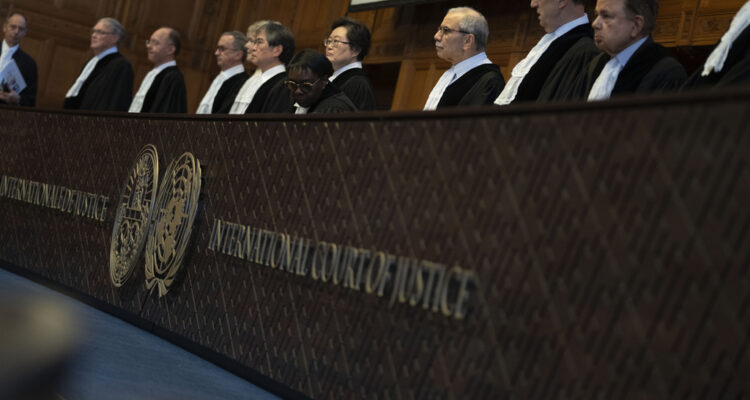The advisory opinion by ICJ judges is not binding but carries weight under international law and may weaken support for Israel.
By The Algemiener and Reuters
The U.S. criticized “the breadth” of the top U.N. court’s opinion that Israel’s presence in Judea and Samaria is illegal, with Washington saying it would complicate efforts to resolve the conflict.
“We have been clear that Israel’s program of government support for settlements is both inconsistent with international law and obstructs the cause of peace,” a U.S. State Department spokesperson said on Saturday in an email.
“However, we are concerned that the breadth of the court’s opinion will complicate efforts to resolve the conflict,” the State Department added.
The International Court of Justice, or the World Court, said on Friday that Israel’s presence in Judea and Samaria and settlements was illegal and should be ended as soon as possible, delivering its strongest findings to date on the Israeli-Palestinian conflict.
The State Department said the ICJ opinion that Israel must withdraw as soon as possible from Judea and Samaria was “inconsistent with the established framework” for resolving the conflict.
Washington said that framework took into account Israel’s security needs, which it says were highlighted by the Oct. 7 attacks on Israel by Palestinian Islamist group Hamas.
Those attacks killed 1,200, with around 250 people taken as hostages.
Two-State Solution
The advisory opinion by ICJ judges is not binding but carries weight under international law and may weaken support for Israel.
The State Department said the way forward was through direct negotiations.
“Israeli settlements in the West Bank and East Jerusalem, and the regime associated with them, have been established and are being maintained in violation of international law,” ICJ President Nawaf Salam said on Friday while reading the findings of a 15-judge panel.
The court said Israel’s obligations include paying restitution for harm and “the evacuation of all settlers from existing settlements.”
Israel rejected the opinion and said a political settlement can only be reached through negotiations. The office of Palestinian President Mahmoud Abbas welcomed the opinion, which it called historic.
The State Department said it “strongly discourages” parties from using the ICJ opinion “as a pretext for further unilateral actions that deepen divisions or for supplanting a negotiated two-state solution.”
The ICJ case stems from a 2022 request for a legal opinion from the United Nations General Assembly.





